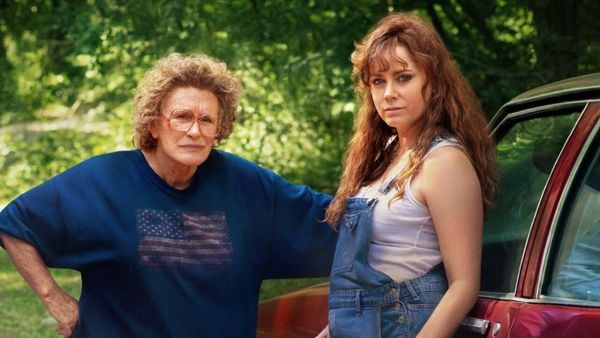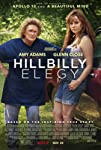Eye For Film >> Movies >> Hillbilly Elegy (2020) Film Review
Hillbilly Elegy
Reviewed by: Jennie Kermode

Should you choose to watch Netflix's adaptation of JD Vance's controversial novel, pay close attention to the opening scenes. There's a small concession here which might change your perspective on everything that follows: though positioned as a memoir, this is not a story about the place where the author spent most of his childhood. Rather, it's about the place where he sometimes summered with his grandparents. It's an outsider's perspective couched as something far more intimate, and as such, its self-deprecating pose comes across as deeply patronising.
The place in question is Middletown, Ohio - one of numerous small towns in a part of Appalachia originally settled by Scots and Irish immigrants who struggled to scrape a living on the poor soil, achieving a brief flush of prosperity as the region was exploited for its metals but gradually declining again afterwards. Few of the characters in Ron Howard's film have steady jobs. To the young Vance, it seems, this was not so bad - he got plenty of attention and enjoyed running loose in the woods, which are given that special Hollywood glow reserved for true love, holidays and childhood. Later in life, his perspective changed. As the story opens he is a law student in the city, on the brink of big opportunities. He's forced to travel back there when his mother ODs on heroin and there's nobody else available who can give her the attention she needs. What follows is a story which mixes formulaic commitment to community with a barrelful of bitterness as he reassesses his earlier life.

There are brief attempts here to deal with real issues, such as the emotional exhaustion that can come from caring for an addict and the difficulties faced by those trying to escape poverty due to the needs of those left behind. Little analysis follows, however, with Vance (played by Gabriel Basso) displaying a spectacular lack of self awareness as he tries to force his mother to take responsibility for her problems whilst doing nothing but whine about his own. Yes, we need more depiction of poor people's lives in cinema, but this is poverty porn, and superficial at best. it's heavy on the stereotypes about addiction, unemployment and family breakdown - treating them as if they apply to most people in the neighbourhood - but curiously unwilling to take on more complicated subjects like distrust of outsiders or straight-out racism. The result feels less like memoir and more like a fantasy concocted by somebody whose only real knowledge of poverty comes from watching other films.
Recycled, repetitive and dull, Hillbilly Elegy strives for sincerity but lacks sufficient conviction to be either meaningful or entertaining. It does, however, have a saving grace in the form of Glenn Close, who is almost unrecognisable as the protagonist's fearsome grandmother. Shorn of all her familiar glamour, she brings complete conviction to this hard-bitten, no nonsense woman, and every moment that she's onscreen is a delight. One cannot help but wish, however, that an equally aggressive script editor had been available to tackle the material she's forced to work with. The film's only other performance of note comes from Freida Pinto, who suffers still more from the flimsy dialogue in a role that gives her barely five minutes of screentime. We never learn the reason for her character's devotion to Vance, just as we never really see him acknowledge the debt he owes to these women whilst he poses as a self-made man.
A trite reflection on a subject rarely given its due in mainstream cinema, this mass of clichés only serves to further obscure what it professes to reveal. It doesn't deserve its awesome women either.
Reviewed on: 15 Jan 2021















